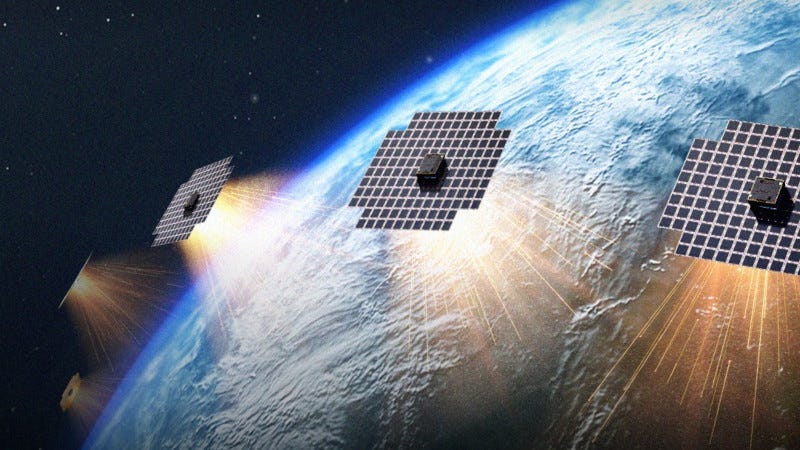FCC Accepts Satellite-to-Phone Applications From AST SpaceMobile, Major Carriers
Three Federal Bureaus Seek Public Comment on Groundbreaking Space-Based Cellular Coverage Proposals
Federal regulators accepted applications that would enable satellites to provide cellular coverage directly to existing smartphones in partnership with major wireless carriers. The FCC announced last week that AST SpaceMobile and AT&T, Verizon, and FirstNet have filed joint applications for supplemental coverage from space authorization.
The Space Bureau, Wireless Telecommunications Bureau, and Public Safety and Homeland Security Bureau found the applications acceptable for filing after initial review. The agencies opened a public comment period running through Oct. 6, with reply comments due Oct. 16 and final responses due Oct. 23.
AST SpaceMobile seeks authority to operate 248 non-geostationary orbit satellites that would work with terrestrial networks from AT&T, Verizon, and FirstNet. The system would use existing cellular frequency bands including 698-716 MHz, 728-746 MHz, 758-768 MHz, 788-798 MHz, 824-849 MHz, and 869-894 MHz to provide coverage.
The company filed applications to modify its existing satellite authorization on June 12, with amendments submitted July 21 and Sept. 3. This builds on AST SpaceMobile's current authorization to operate five satellites for feeder link and telemetry operations. Regulators granted partial approval Aug. 29 for 20 additional satellites.
AST SpaceMobile and AT&T filed spectrum lease arrangements covering 800 MHz Cellular A and B Block spectrum plus Lower 700 MHz A, B, and C Block spectrum licensed to AT&T in the continental United States and Hawaii. A separate lease arrangement with Verizon covers 800 MHz Cellular spectrum in the same geographic areas.
FirstNet, the federal public safety network, filed an administrative update for its 700 MHz Public Safety Broadband Nationwide License. The arrangement would provide supplemental coverage in the 758-768 MHz and 788-798 MHz bands exclusively assigned to FirstNet for public safety communications.
The applications require multiple waivers of current FCC rules. The companies seek waivers to deploy supplemental coverage in areas where terrestrial carriers don't hold spectrum across entire geographic service areas. They also request permission to provide service on devices certified before June 29, 2024, that lack specific authorization for satellite operations.
Under existing rules, satellite operators and wireless licensees can enter spectrum leases only when holding all co-channel licenses throughout one of six geographic service areas. AST SpaceMobile, AT&T, and Verizon argue their cellular licenses don't cover entire continental U.S. areas, necessitating rule waivers.
The FCC noted FirstNet's unique structure requires alternative procedures for meeting supplemental coverage criteria. Regulators specifically seek comment on interference studies and whether the satellite system would impact public safety operations on adjacent spectrum bands.
The proceeding will follow permit-but-disclose rules for outside communications with agency officials. Interested parties must file electronic comments through the FCC's online system or submit paper filings to the agency's Maryland processing center.



